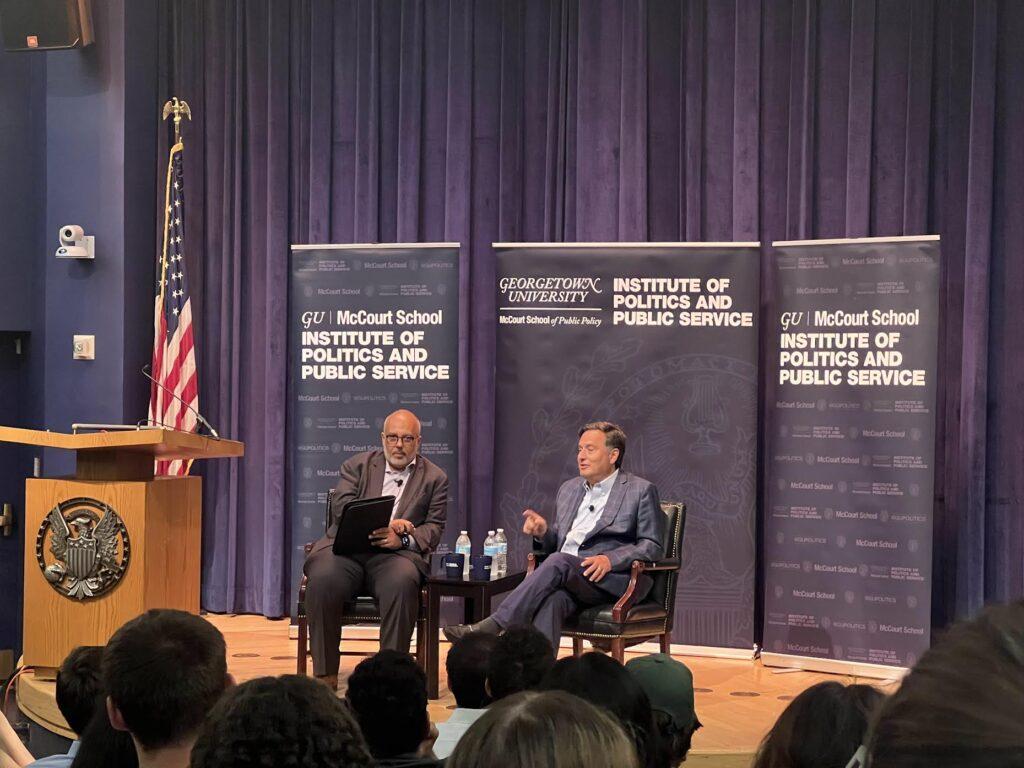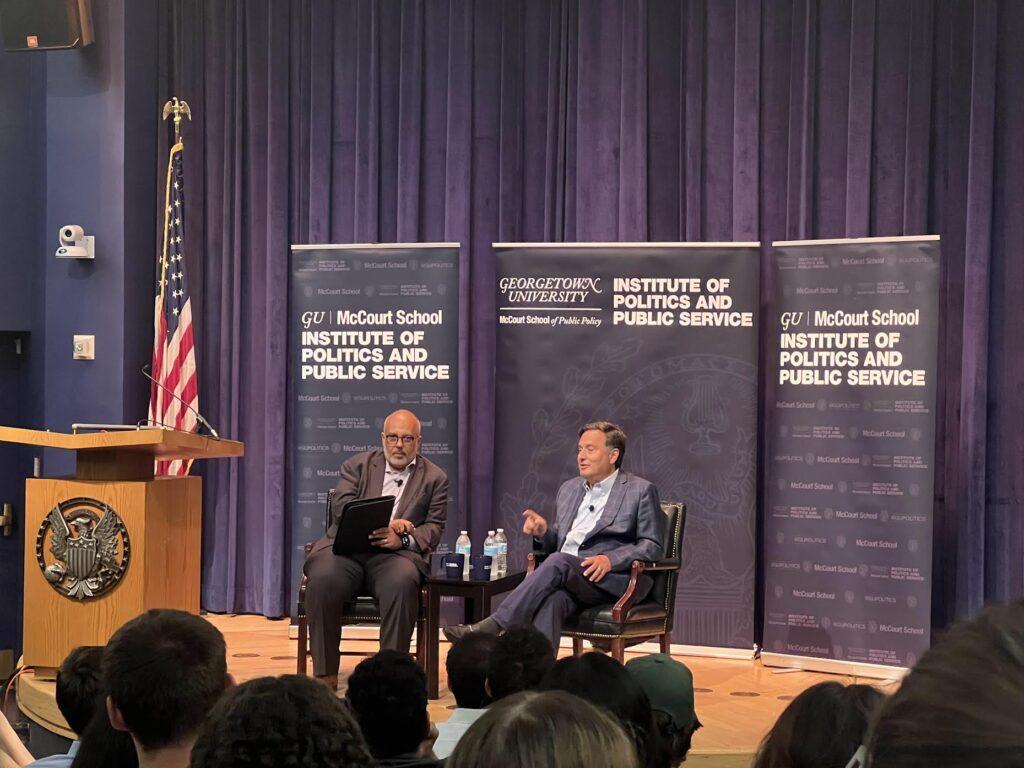Former White House Chief of Staff Ron Klain (CAS ’83) discussed mistrust in American politics and his role in the Biden administration during a visit to campus to speak with students.
Klain, who served as President Joe Biden’s chief of staff from the start of his term until Feb. 2023, talked about his career in government in a Sept. 6 town hall-style discussion entitled “Restoring Trust in Government.” The Georgetown University Institute of Politics and Public Service (GU Politics) hosted the event, with GU Politics Executive Director Mo Elleithee (SFS ’94) moderating the discussion.
Klain began his career in politics as a Senate staffer before joining the Clinton administration, serving as chief of staff to then-Attorney General Janet Reno and then-Vice President Al Gore. In 2009, Klain became then-Vice President Biden’s chief of staff before becoming White House Chief of Staff in 2021.
According to the Pew Research Center, Americans’ trust in government has fallen from a high of 77% in 1964 trusting the government to do what is right most of the time to 20% in 2022.
Klain said his experience in politics since the 1980s has given him a unique perspective on the gradual decline of public confidence in American government.
“People our age, our interest in government declined with the war in Vietnam. It seemed like a debacle that the government mismanaged and had all kinds of excuses for the failures of the Watergate scandal. I think it changed how we saw government, whether we could trust our leaders,” Klain said at the event.
“The so-called forever wars in Iraq and Afghanistan also contributed to that lack of trust and that sense that the government didn’t know what it was doing,” Klain added. “You take all that, you add to it the general polarization in our country right now, the division that’s fed apart by social media and other factors, and you have a formula for distrust in government.”

Klain served as the United States’ Ebola response coordinator in 2014 and said his experience in government during the COVID-19 pandemic revealed that trust in science was a particularly key subset of mistrust in government.
“Every time there’s been a new vaccine, there has been vaccine hesitancy,” Klain said. “This time, it was, I think, a little more politically polarized and more associated with the political division in our country. And it’s a shame. It shouldn’t be that way.”
Klain said a way to solve the problem of mistrust in government is to pass laws which directly impact Americans’ daily lives.
“The answer is show the people results, show the people that the government can deliver. You can build bridges, you can build roads, you can connect people who don’t have internet to broad high-speed internet,” Klain said. “But I think those results will not restore some of the trust in government. That will take time.”
Klain said the Biden administration’s legislative accomplishments, including the Inflation Reduction Act, the Bipartisan Infrastructure Law and the CHIPS Act, had proven to him that democracy could continue to affect real change in a polarized, partisan environment.
“There was a view in some circles that you needed an autocratic system like China’s to effectively shape, effectively manage complex changes in the market. It was too unruly, too divisive, too rambunctious to possibly achieve structured strategy, strategic change,” Klain said. “The President rejected that and said that no, in fact, that our democratic values and the robustness of our democracy was a strength we had as a country, not a liability.”
Klain also addressed the Biden administration’s controversial decision to withdraw troops from Afghanistan in August 2021, prompting the Taliban’s overthrow of the Afghan government and reinstatement of Sharia law and restrictions on women’s rights.
“We originally had gone to bring Osama bin Laden to justice — he had been brought to justice a decade ago, and we were still there. And it seemed like the purpose of our being there kept changing all the time,” Klain said. “And the president thought that the men and women of our armed forces shouldn’t have to go there, shouldn’t have had to fight, shouldn’t have risked their lives.”
Despite the intensely partisan environment of political work now, Klain said politics allows for real change to happen for ordinary people.
“I think you should always hold your head up if you’re doing politics. Whether that’s campaigns, public service, political appointee, whatever,” Klain said. “Politics is what makes change possible in a democratic society, and so never feel apologetic, or head down about the fact that you like politics or you’re involved in politics.”





















